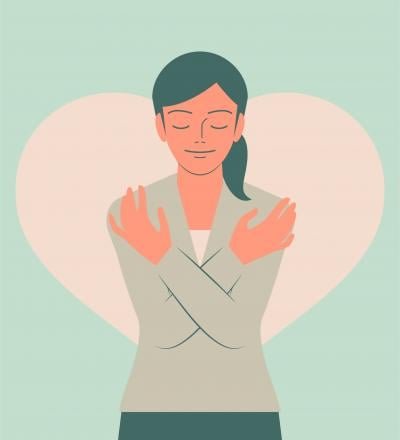Infusing ERP with Self-Compassion | Anxiety and

“Jill” was a client who came to my office seeking help with harm obsessions. She had a fairly classic presentation of harm-by-neglect — you know, the one that masquerades as a “fear” of bad things happening but is really driven by shame and an inflated sense of responsibility. It seems like it’s about burning down the house, but it’s really about being responsible for burning down the house. As we dissected her OCD, neatly separating obsession from compulsion, we quickly came to an understanding of what she’d need to do in order to learn to trust herself again. She’d refrain from checking the stove and the locks. She’d reduce hypervigilance by multitasking while cooking. She’d recite state capitals when she walked out of the house so that she couldn’t focus fully on locking the door. She never looked back, literally. Jill got into the spirit of treatment. She nailed the exposure. She nailed the response prevention. But Jill was still miserable.
This is because Jill stopped compulsively checking and started compulsively self-flagellating. With each resisted compulsion, there would be a self-critical voice piping in with, “You’re a monster” or “You deserve to be punished”. The torment of resisting a lock-check became its own reward. Jill could feel assured in her response prevention knowing that she was paying penance for her perceived negligence. It was okay to forego the rituals, as long as she properly chastised herself afterward. So here she was: compulsions controlled, but replaced with another trap. Eventually, she began to feel relief in her suffering — it was reassuring to know that she had beaten herself up sufficiently. If she punished herself enough, balance would be restored, and she could carry on.
What was missing from our plan? Where did we go wrong? We had good, creative exposures. We had consistent and spirited response prevention. What we didn’t have was self-compassion. OCD doesn’t just manipulate its victims with anxiety; it preys upon sufferers with guilt and shame and disgust. It has a very particular set of skills, inflicting pain in a variety of ways. While traditional ERP does a fantastic job of dismantling fear conditioning, it doesn’t directly address shame or guilt. If you want the version of ERP that addresses shame, you’ll have to pay extra for the after-market add-on.
So we re-tooled our approach. If tolerating distress and uncertainty were the instruments to combat anxiety, self-compassion would be the antidote to shame. It wasn’t enough to walk away from the stove without checking; now, Jill would walk away and practice being kind to herself. A self-compassion-infused response prevention meant that each of these exposure opportunities would be paired with a gesture of positive self-regard. She would treat herself to something indulgent. Say something nice about herself. Offer an acknowledgment of her worth, even while being imperfect. When she wanted to isolate and hide herself away, she’d reach out to a friend or go out of the house. When she wanted to get small and take up less space, she’d assert herself.
These acts of self-compassion initially made Jill cringe. The sweetness of it felt wrong. Much like someone might white-knuckle and steel themselves for an exposure, Jill would grit her teeth and scrunch up her face when she would utter a word of kindness to herself. We focused on getting more open to these experiences, letting the warmth of positive self-regard wash over her, rather than wrestling with it. She gradually became more tolerant of these sentiments, allowing herself to forego checking compulsions without feeling the need to punish herself.
Traditionally, exposure has asked the question: what do you need to learn in order to foster habituation? We’ve added new questions along the way: what do you need to learn in order to build new associations to replace the old ones? Or what do you need to learn in order to relate to anxiety in a more helpful way? While these questions are important, there may still be more to learn. After all, humans are complicated. There may be a multitude of questions: what do you need to learn in order to treat yourself more kindly? What do you need to learn in order to trust yourself? What do you need to learn in order to stop qualifying your worth?
While exposure may have its roots in a more hard-nosed behaviorism, its application is broad. For many clinicians, it’s become short-hand for experiential learning. It’s how we take that functional analysis from session and operationalize it in the real world, curating the kinds of experiences our clients need so that they can remove the barriers to living more fully. For Jill, it was useful to know that the house wouldn’t burn down if she stopped checking; but it was more important to learn that she would still be a worthwhile human being even if it did.
Source link
#Infusing #ERP #SelfCompassion #Anxiety

